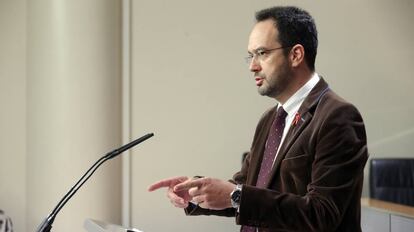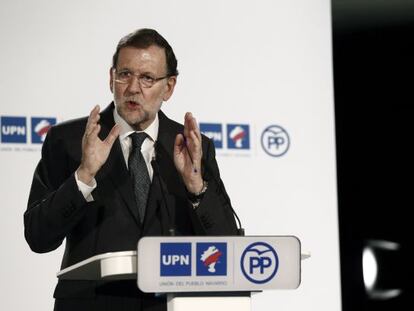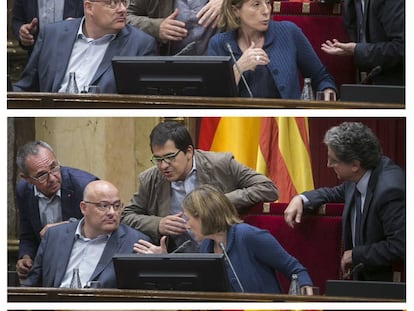Will fear of a referendum slow constitutional reform in Spain?
Italian vote leaves ruling PP reluctant to push reforms that might require a plebiscite
In late 2015, Spanish Prime Minister Mariano Rajoy finally conceded he would be willing to discuss changes to Spain¡¯s 1978 constitution if he won a second term in office. Among the possible changes to be looked at in a hypothetical debate on reform were specifying the official names of Spain¡¯s regions, setting down in the Constitution that European Union legislation applies to Spain, and altering the rules to the succession of the throne to male precedence.

Critically, Rajoy also said his ruling Popular Party (PP) would be open to looking at unspecified territorial issues ¨C a comment which came in the context of a mounting secessionist bid in Catalonia.
But the end of Spain¡¯s traditional bipartisan system prompted by the appearance of new parties Podemos and Ciudadanos means changes to the constitution are not as easy to push through Congress as was previously the case and could even require referendum ¨C something the PP appears keen to avoid after the failure of Italy¡¯s recent poll on political reforms.
Podemos now has the numbers to force a referendum on proposed constitutional changes
Former Prime Minister Jos¨¦ Luis Rodr¨ªguez Zapatero, who headed a Socialist Party (PSOE) administration between 2004 and 2011, made the most headway toward constitutional reform, going as far as asking the Council of State to prepare a report on the issue. But after Rajoy came to power, that document was filed away.
Under Zapatero, there were a couple of changes to the Spanish constitution including fast-track approval of an EU-imposed measure on budgetary stability and a touch-up allowing for European citizens to vote on municipal elections in Spain.
But with the emergence of the anti-austerity party Podemos and the center-right grouping Ciudadanos, the country¡¯s two largest parties ¨C the PP and the PSOE ¨C can no longer push through such changes in parliament. Under article 167 of the constitution, any change approved by Congress is subject to a referendum if one tenth of sitting members of either the country¡¯s upper or lower house request such a move within 15 days of that approval.
That means Podemos now has enough deputies to force a referendum even if the constitutional changes approved by the Congress are minor and don¡¯t require a double dissolution of Congress.

¡°It¡¯s always good if the people vote,¡± said Podemos leader Pablo Iglesias on Monday, noting the party would put any possible changes to the Spanish constitution up for referendum.
But after Italy¡¯s failed referendum on Sunday, the PP is reticent about going down this road.
¡°Referendums are the work of the devil because they make people do the work of politicians and constitutional reforms have to be carried out when there is consensus,¡± said the PP¡¯s Deputy Secretary for Organization Fernando Mart¨ªnez-Maillo on Spain¡¯s Antena 3 television channel on Monday. In other words, constitutional reform is only possible if all parties agree and a ¡®yes¡¯ in any possible referendum is assured.
Currently the proposed constitutional changes of the four main parties in the Spanish Congress do not line up, and these differences are even more pronounced when the interests of smaller nationalist and pro-independence parties are factored in.
For his part, Rajoy has always maintained that constitutional reform can only take within clearly defined boundaries, involving minimal changes. Debates over issues including the future of Spain¡¯s monarchy and self-determination are off the table.
Referendums are the work of the devil because they make people do politicians' jobs PP Deputy Secretary for Organization, Fernando Mart¨ªnez-Maillo
But in a deal that saw Ciudadanos help the PP back into power, the PP has said it will look at possible reforms to the electoral system and scrapping aforamiento, a system which affords a level of legal protection to some 10,000 politicians, magistrates and other public officials.
Moves towards such changes could be kick-started by a petition made by two political groups within the Congress or by 70 deputies ¨C one fifth of all representatives. But there would be no fixed time frame and work could be carried out over the course of the current legislature.
And while the PP and the Socialists would be in the driver¡¯s seat during such a process, other smaller parties would be able to influence the terms of the debate and its duration. The two largest parties would also be unable to stop a possible referendum on any proposed changes without cross-party consensus.
¡°Consensus is necessary. The PSOE would have to be there and I would dare to say the other parties would [have to agree],¡± said Mart¨ªnez-Maillo.
English version by George Mills.
Tu suscripci¨®n se est¨¢ usando en otro dispositivo
?Quieres a?adir otro usuario a tu suscripci¨®n?
Si contin¨²as leyendo en este dispositivo, no se podr¨¢ leer en el otro.
FlechaTu suscripci¨®n se est¨¢ usando en otro dispositivo y solo puedes acceder a EL PA?S desde un dispositivo a la vez.
Si quieres compartir tu cuenta, cambia tu suscripci¨®n a la modalidad Premium, as¨ª podr¨¢s a?adir otro usuario. Cada uno acceder¨¢ con su propia cuenta de email, lo que os permitir¨¢ personalizar vuestra experiencia en EL PA?S.
?Tienes una suscripci¨®n de empresa? Accede aqu¨ª para contratar m¨¢s cuentas.
En el caso de no saber qui¨¦n est¨¢ usando tu cuenta, te recomendamos cambiar tu contrase?a aqu¨ª.
Si decides continuar compartiendo tu cuenta, este mensaje se mostrar¨¢ en tu dispositivo y en el de la otra persona que est¨¢ usando tu cuenta de forma indefinida, afectando a tu experiencia de lectura. Puedes consultar aqu¨ª los t¨¦rminos y condiciones de la suscripci¨®n digital.










































